The Ultimate List of TOP Universities for Marine Science & Oceanography - *International*
Published on 6/15/25
Written by Jessica Colla
Dreaming of diving into the world of marine science or oceanography but not sure where to start your academic journey? Whether you're a high school student exploring colleges and degree options for the first time or a college student ready to specialize, this guide is for you! We've pulled together an epic list of the best marine programs around the world—organized by region—to help you find the perfect fit. From hands-on coral reef research to Antarctic adventures, there’s something here for every ocean lover!
Each school profile gives you the scoop on what they’re best at, what kind of degrees they offer, fieldwork opportunities, and what language the classes are taught in (so you’re not caught off guard!).
Let’s dive in!
This blog may contain affiliate links. If you make a purchase through these links, Kaimana Conservation may earn a small commission at no additional cost to you. Your support helps us continue our mission to promote ocean conservation and education. Thank you!
Scripps Institution of Oceanography (UC San Diego, USA)
Location: La Jolla, California
Degrees: Undergraduate to Ph.D.
What it Excels In: One of the world's most important centers for ocean and earth science research and education. Students train with experts in climate change, ocean exploration, and more, with access to a fleet of research vessels and the Birch Aquarium.
Research & Fieldwork: Emphasizes hands-on fieldwork including research at sea and diving programs.
Language of Instruction: English
Website: scripps.ucsd.eduscripps.ucsd.edu
One of the world’s most important centers for ocean and earth science research and education. Scripps offers degrees from undergraduate to PhD level, combining strong academics with cutting-edge research opportunities. Students train with renowned experts in areas like climate change (the Keeling Curve CO₂ record began here) and ocean exploration, and have access to world-class facilities including a fleet of research vessels and the Birch Aquarium for public outreach. Hands-on fieldwork is emphasized – undergraduates and interns often participate in research at sea or through Scripps’ diving program.
University of Washington – School of Oceanography (Seattle, USA)
Location: Seattle, Washington
Degrees: Undergraduate to Ph.D.
What it Excels In: Consistently ranked among the top oceanography programs globally. Strong in physical, chemical, biological, and geological oceanography with research infrastructure including ships and the Friday Harbor Labs.
Research & Fieldwork: Heavy emphasis on research cruises and coastal labs.
Language of Instruction: English
Website: ocean.washington.edu
A consistently top-ranked oceanography program globally (ranked #1 in the world in recent academic subject rankings). UW’s School of Oceanography is a national leader in oceanographic research and education, offering comprehensive training in physical, chemical, biological, and geological oceanography. Students benefit from outstanding research infrastructure, including ocean-going research ships (e.g. the R/V Thomas G. Thompson) and the Friday Harbor Laboratories field station, for hands-on study of Puget Sound, open-ocean, and deep-sea environments. The curriculum strongly integrates fieldwork, internships, and research, ensuring graduates are well-prepared for careers or advanced study in marine science.
Massachusetts Institute of Technology (MIT) / Woods Hole Oceanographic Institution Joint Program (Massachusetts, USA)
Location: Cambridge and Woods Hole, Massachusetts
Degrees: Graduate only (Master's and Ph.D.)
What it Excels In: A world-renowned program combining MIT’s academic rigor with WHOI’s cutting-edge marine science research.
Research & Fieldwork: Focus on research from the outset with access to submersibles, vessels, and advanced labs.
Language of Instruction: English
Website: mit.whoi.edu
A prestigious graduate-only program that merges two powerhouse institutions. The MIT-WHOI Joint Program is considered “one of the world’s most prestigious graduate degree programs in marine science,” producing many of the world’s leading oceanographers. Students pursue Master’s or PhDs in areas such as applied ocean science, marine biology, and oceanography, leveraging MIT’s advanced coursework and WHOI’s unparalleled research facilities (including oceanographic research vessels, submersibles, and labs). The program emphasizes research from the start – students work alongside scientists at WHOI on projects ranging from deep-sea exploration to climate and ocean engineering. Instruction is in English, and the program’s alumni network spans top positions in academia, government, and industry worldwide.
University of Miami – Rosenstiel School of marine, atmospheric and earth science (Florida, USA)
Location: Miami, Florida
Degrees: Undergraduate to Ph.D., including professional master’s programs
What it Excels In: Known for its tropical marine biology, fisheries, coral reef research, and hurricane studies.
Research & Fieldwork: Access to a 96-foot research vessel and a high-tech seawater complex.
Language of Instruction: English
Website: www.earth.miami.edu
A leading institution for marine science in the subtropical U.S. The Rosenstiel School (often called RSMAS) has grown from a small marine lab into “one of the nation’s leading institutions for oceanographic and atmospheric research and education.” Students can pursue undergraduate majors in Marine Science, Marine Biology, etc., as well as graduate degrees (M.S., Ph.D. and a unique Master of Professional Science). The school is known for its tropical marine biology and fisheries programs, coral reef and shark research, and hurricane and climate studies. It boasts specialized facilities, including a 96-foot research catamaran (the F.G. Walton Smith) for coastal and open-ocean research and a high-tech Marine Technology & Life Sciences Seawater Complex for studying ocean–atmosphere interactions and aquaculture. With its waterfront campus on Virginia Key, students get extensive field experience on nearby coral reefs, mangroves, and in the open ocean.
University of Hawaiʻi at Mānoa (Hawai‘i, USA)
Location: Honolulu, Hawai‘i
Degrees: Undergraduate to Ph.D.
What it Excels In: Exceptional access to Pacific ecosystems and coral reef research via the Hawai‘i Institute of Marine Biology.
Research & Fieldwork: Field-based learning on Coconut Island and research stations across the state.
Language of Instruction: English
Website: soest.hawaii.edu
Offers exceptional opportunities in marine science and oceanography in the heart of the Pacific. UH Mānoa’s School of Ocean and Earth Science and Technology (SOEST) is a world leader in ocean research and education. The university’s unique location allows students to study volcano-ocean interactions, deep ocean processes, and coral reef ecology firsthand. It operates the Hawaiʻi Institute of Marine Biology on Coconut Island – a dedicated research station where students conduct snorkel-based fieldwork on coral reefs in an actual marine reserve. Programs include a B.S. in Marine Biology and graduate degrees in Oceanography and Marine Biology, all taught in English. UH’s research fleet and deep-sea observatories (such as the long-term Station ALOHA) provide extensive fieldwork opportunities, and its scientists are at the forefront of areas like Pacific coral reef conservation, marine mammals, and climate studies.
Texas A&M University at Galveston (USA)
Location: Galveston, Texas
Degrees: Undergraduate to Ph.D.
What it Excels In: Marine biology, fisheries science, coastal environmental science, and maritime training
Research & Fieldwork: Sea Life Facility, Gulf Center for Sea Turtle Research, research vessels like the R/V Trident
Language of Instruction: English
Website: tamug.edu
Texas A&M University at Galveston (TAMUG) is a coastal branch of Texas A&M and a premier marine science and maritime campus offering diverse degree programs focused on ocean and coastal systems. TAMUG offers undergraduate and graduate degrees in Marine Biology, Marine Sciences, Marine Fisheries, Coastal Environmental Science, and Ocean and Coastal Resources, among others. Students have access to unique hands-on learning facilities including the Sea Life Facility for aquaculture and organismal biology, and the Gulf Center for Sea Turtle Research, which is involved in active conservation and rehabilitation.
Fieldwork plays a central role at TAMUG, with opportunities for research aboard the R/V Trident and other vessels in the Gulf of Mexico. The university also hosts the Texas A&M Maritime Academy, giving marine science students the chance to pursue U.S. Coast Guard licenses alongside their degrees. Faculty are engaged in high-impact research across marine mammal ecology, wetlands restoration, fisheries management, and marine toxicology. With a strategic location near Galveston Bay, TAMUG integrates academics with applied research and coastal outreach, offering one of the most practical and interdisciplinary marine science educations in the U.S.
University of Alaska Fairbanks – Blue MBA (USA)
Location: Fairbanks and online
Degrees: Graduate (MBA + Marine Science emphasis)
What it Excels In: A unique fully online, asynchronous "Blue MBA" combining business and marine science with a focus on Arctic and maritime leadership.
Research & Fieldwork: Practical capstone projects in marine business.
Language of Instruction: English
Website: uaf.edu
Known for its innovative “Blue MBA”, which combines marine science with business education. Based at UAF’s College of Fisheries and Ocean Sciences, this unique program blends an AACSB-accredited MBA with graduate coursework in fisheries, oceanography, and marine biology. The Blue MBA is designed to train leaders who understand both the science and business of ocean resources, particularly in the context of the changing Arctic environment. Notably, it’s the world’s only fully online, asynchronous “Blue” MBA program, making it accessible internationally. Students learn about sustainable use of marine resources, Arctic maritime policy, and the Blue Economy, preparing for careers in fisheries management, maritime industry, environmental consulting, and more.
Dalhousie University (Halifax, Canada)
Location: Halifax, Nova Scotia
Degrees: Undergraduate to Ph.D.
What it Excels In: Canada's top institution for marine research, known for the Ocean Frontier Institute and North Atlantic studies.
Research & Fieldwork: Strong emphasis on research cruises, lab work, and coastal ecology.
Language of Instruction: English
Website: dal.ca
Widely regarded as Canada’s top university for ocean sciences. Dalhousie’s Department of Oceanography and allied Marine Biology programs make it “Canada’s premier location for ocean research and education.” The university is situated on the Atlantic coast, allowing direct access to diverse marine environments (from the open North Atlantic to coastal ecosystems). Dalhousie hosts the Ocean Frontier Institute, a major transnational research center focused on ocean-climate science and fisheries. Students can pursue B.Sc. degrees in Marine Biology or Ocean Sciences and graduate degrees (M.Sc., Ph.D.) in Oceanography; all programs are taught in English. Dalhousie emphasizes research and fieldwork – undergraduates often participate in field courses on the coast, and the university attracts over $100 million in ocean-related research funding annually, giving students opportunities to work on cutting-edge projects (from plankton genetics to deep-sea ecology).
National Autonomous University of Mexico (UNAM)
Location: Mexico City, Mazatlán, Veracruz, Puerto Morelos and Sisal, Yucatán
Degrees: Undergraduate to Ph.D.
What it Excels In: National leader in coral reef ecology, coastal zone management, sustainable fisheries, and ocean science.
Research & Fieldwork: Research at coastal field stations across Mexico and the Gulf.
Language of Instruction: Spanish (select graduate courses in English)
Website: icmyl.unam.mx
UNAM is Mexico’s leading university and a powerhouse in Latin American marine science. Its Institute of Marine Sciences and Limnology (ICMyL) operates multiple coastal research stations, including the Puerto Morelos reef research facility in the Mexican Caribbean. Programs integrate coral reef monitoring, seagrass surveys, oceanography, and marine policy. Students gain field experience in marine reserves, dive-based surveys, and applied coastal restoration projects. UNAM also participates in international reef health networks and collaborative research throughout the Gulf of Mexico and Mesoamerican Barrier Reef.
ETH Zurich – Swiss Federal Institute of Technology (Switzerland)
Location: Zurich, Switzerland
Degrees: Undergraduate to Ph.D.
What it Excels In: Earth and marine sciences, climate and ecosystem modeling, and interdisciplinary environmental research
Research & Fieldwork: Alpine and global field expeditions, EU-led ocean monitoring projects, and collaborative climate-ocean modeling
Language of Instruction: German (B.Sc.), English (M.Sc. and Ph.D.)
Website: ethz.ch/en.html
ETH Zurich is consistently ranked the #1 university in the world for Earth & Marine Sciences and #1 in Europe (Times Higher Education 2025). It offers highly interdisciplinary programs through its Earth and Climate Sciences and Environmental Systems Science departments, combining marine ecology, physical oceanography, and climate modeling. Students engage in hands-on field courses across Europe and collaborate with large-scale marine initiatives like AtlantECO and Blue-Cloud. With globally respected faculty and a systems-thinking approach, ETH prepares students for leadership in ocean and climate science.
University of Southampton (England, UK)
Location: Southampton, England
Degrees: Undergraduate to Ph.D.
What it Excels In: Home to the National Oceanography Centre. Specializes in oceanography, marine biology, deep-sea research, and marine technology.
Research & Fieldwork: Access to R/V Callista and other vessels for sea training.
Language of Instruction: English
Website: www.southampton.ac.uk
Home to the National Oceanography Centre Southampton (NOCS), one of the world’s largest hubs for marine research and education. Southampton offers multiple undergraduate and graduate programs in Oceanography, Marine Biology, and related fields. Students here gain extensive practical experience: the university operates a dedicated 19m teaching and research vessel (R/V Callista), giving students hands-on fieldwork at sea as part of their coursework. The curriculum integrates laboratory analysis, high-performance computing (for modeling ocean processes), and even certification in scientific diving and sea survival skills. Southampton’s Ocean and Earth Science programs are highly ranked globally (top 40 worldwide in QS subject rankings) and led by experts tackling challenges from climate change to deep-sea exploration.
University of Plymouth (England, UK)
Location: Plymouth, England
Degrees: Undergraduate to Ph.D.
What it Excels In: Practical marine biology education, proximity to top research facilities like the Marine Biological Association.
Research & Fieldwork: Extensive field courses, coastal and open-sea training, and dive certifications.
Language of Instruction: English
Website: www.plymouth.ac.uk
Renowned for practical marine science education and research, Plymouth offers an immersive learning environment on the Devon coast. The university has strong links to Plymouth’s marine research cluster – including the Marine Biological Association and Plymouth Marine Laboratory – making the city “one of the largest concentrations of marine science study in Europe.” Students in programs like BSc Marine Biology and Oceanography receive hands-on training in marine survey techniques, underwater sampling, species identification, and scientific diving. Plymouth’s facilities include a waterfront Marine Station with teaching labs, aquaria, and dive support, as well as research vessels based in the Plymouth Sound Special Area of Conservation. Field courses are a hallmark of the program – students might spend time studying marine ecosystems in France or Sweden, and even conduct research from an ocean-going vessel in the open Atlantic.
Sorbonne University (France)
Location: Paris and coastal stations
Degrees: Master’s and Ph.D.
What it Excels In: Longstanding expertise in oceanography and marine ecosystems, part of the IMBRSea network.
Research & Fieldwork: Coastal marine stations in Banyuls-sur-Mer, Roscoff, and Villefranche.
Language of Instruction: French and English (varies by year and program)
Website: www.sorbonne-universite.fr
Sorbonne’s marine science programs train oceanographers in biological oceanography, marine ecology, and biogeochemistry. A unique feature is the direct use of the university’s three coastal marine research stations, immersing students in hands-on research in diverse environments. These stations provide logistical access to marine environments and cutting-edge laboratories, giving students real-world experience alongside their coursework. Sorbonne is also a key player in the IMBRSea Master’s program, which welcomes international students and supports instruction in both French and English. The university’s global collaborations and strong reputation in European marine research make it a top-tier destination for aspiring marine scientists.
Bangor University (Wales, UK)
Location: Bangor, Wales
Degrees: Undergraduate to Ph.D.
What it Excels In: Nearly 100 years of marine science education; wide disciplinary coverage.
Research & Fieldwork: Students train aboard the R/V Prince Madog.
Language of Instruction: English
Website: www.bangor.ac.uk
Bangor is one of the largest university centers for marine sciences in the UK. The program covers a broad range of disciplines, from coastal ecology and marine biology to physical oceanography. Bangor owns the R/V Prince Madog, the UK’s only seagoing university research ship, giving students rare access to full-scale marine survey training. Field-based learning is central, and the university’s coastal location on the Menai Strait offers immediate access to a range of habitats. Students also have access to aquaria, wave tanks, and specialized labs. Bangor’s strong academic tradition and hands-on training approach make it one of the most practical and respected marine programs in Europe.
University of Bergen (Norway)
Location: Bergen, Norway
Degrees: Undergraduate (in Norwegian), Master’s and Ph.D. (in English)
What it Excels In: High-latitude oceanography, fisheries biology, and Arctic climate studies.
Research & Fieldwork: Fjord-based labs and Arctic research opportunities.
Language of Instruction: Norwegian (B.Sc.); English (M.Sc./Ph.D.)
Website: uib.no
The University of Bergen is Norway’s largest marine university and a leader in marine and climate research in Scandinavia., Known for its “high-quality marine education and world-class research environments,” it offers English-taught graduate programs (M.Sc. and Ph.D.) in areas such as Marine Biology, Fisheries Science, and Oceanography. Bergen’s strength lies in ocean-climate studies and Arctic research – it hosts the Bjerknes Centre for Climate Research and partners with the Institute of Marine Research (one of Europe’s biggest marine institutes). Students benefit from modern research vessels and proximity to diverse marine environments: fjords, the North Sea, and the Arctic Ocean. The university has taken a leading role in international ocean initiatives (it coordinates global university collaboration on UN Sustainable Development Goal 14, “Life Below Water.” All higher-level courses are offered in English, making it welcoming for international students.
UiT The Arctic University of Norway (Norway)
Location: Tromsø, Norway
Degrees: Undergraduate to Ph.D.
What it Excels In: Arctic marine ecosystems, climate change science, polar biology, and fisheries research
Research & Fieldwork: Arctic expeditions, access to research vessels, field stations in Svalbard, and polar laboratory facilities
Language of Instruction: English (graduate programs), Norwegian (most undergraduate programs)
Website: en.uit.no/enhet/amb
UiT The Arctic University of Norway is the northernmost university in the world and a global leader in Arctic marine research. It offers Bachelor’s, Master’s, and Ph.D. programs in areas such as Marine Ecology, Fisheries Science, and Arctic Marine Biology. Graduate programs, especially the M.Sc. in Marine Ecology and the International Fisheries Management program, are taught in English and attract students from around the world. Students benefit from hands-on experience aboard research vessels like the R/V Helmer Hanssen, and fieldwork opportunities in remote polar regions including Svalbard. UiT’s strategic location allows for direct study of sea ice dynamics, Arctic biodiversity, and sustainable resource use in changing high-latitude environments. The university is part of the University of the Arctic network and collaborates on EU-funded climate and ecosystem monitoring projects, making it a top choice for those passionate about polar science and conservation.
James Cook University - Australian Institute of Marine Science (AIMS) (Australia)
Location: Townsville, Queensland
Degrees: Undergraduate to Ph.D.
What it Excels In: World leader in tropical marine biology and coral reef research.
Research & Fieldwork: Partnered with AIMS; access to Orpheus Island Research Station.
Language of Instruction: English
Website: www.jcu.edu.au
A world leader in tropical marine biology and coral reef studies. JCU, located in Townsville near the Great Barrier Reef, has a formal partnership with the Australian Institute of Marine Science (AIMS). This collaboration has turned Townsville into a global center of excellence for tropical marine science research and education. In fact, the joint AIMS@JCU initiative brings together “the largest concentration of tropical marine scientists in the world.” JCU offers undergraduate and postgraduate programs in Marine Biology, Marine Science, and Aquaculture. Students have unparalleled fieldwork opportunities on the Great Barrier Reef – from studying at JCU’s Orpheus Island Research Station to internships with AIMS. The university is especially known for coral reef ecology, climate change impact on reefs, and marine conservation.
University of Sydney - Sydney Institute of Marine Science (SIMS) (Australia)
Location: Sydney, New South Wales
Degrees: Undergraduate to Ph.D.
What it Excels In: Interdisciplinary marine studies through SIMS and One Tree Island Research Station.
Research & Fieldwork: Focus on temperate and tropical systems.
Language of Instruction: English
Website: sydney.edu.au
Boasts over 150 years of marine science teaching and research. The University of Sydney’s marine programs (undergrad and postgrad) benefit from both local coastal facilities and distant field stations. In Sydney, students and researchers collaborate at the Sydney Institute of Marine Science (SIMS) – a multi-university marine research hub on Sydney Harbour – to study urban marine ecology, climate impacts, and restoration of coastal habitats. Sydney also operates One Tree Island Research Station on the Great Barrier Reef, where students can conduct field courses and research on coral reef geology and ecology. The Marine Studies Institute at USyd emphasizes interdisciplinary training, bridging biology, geoscience, engineering, and even marine policy. All programs are in English, and students gain both lab and field skills along with exposure to Australia’s diverse marine environments (tropical reefs to temperate kelp forests).
University of Tasmania - Institute for Marine and Antarctic Studies (Australia)
Location: Hobart, Tasmania
Degrees: Undergraduate to Ph.D.
What it Excels In: Unique focus on temperate and Antarctic science.
Research & Fieldwork: Partnerships with CSIRO and Australian Antarctic Division.
Language of Instruction: English
Website: www.utas.edu.au/imas
UTAS, through IMAS, is internationally recognized for marine and Antarctic science. IMAS is an Australian Centre of Excellence dedicated to studying the ocean and Southern Ocean ecosystems, with a strong focus on climate change impacts on marine life. It has built a reputation as “one of the leading research centers for marine and Antarctic studies” over the past decade. Students can pursue degrees in Marine Science, Marine Biology, or Antarctic Science (at undergrad and postgrad levels, all in English). A unique aspect of UTAS/IMAS is its interdisciplinary approach: courses integrate natural sciences with policy, law, and resource management, reflecting the institute’s mission to produce scientists and policymakers who can govern oceans and the Antarctic sustainably. Tasmania’s location offers students access to kelp forest ecosystems, the Southern Ocean, and Antarctic research programs. UTAS collaborates closely with Australia’s national Antarctic program and CSIRO’s Marine Laboratories in Hobart, providing exceptional fieldwork and research opportunities – from Antarctic research voyages to local conservation projects.
University of Auckland (New Zealand)
Location: Auckland and Leigh Marine Lab
Degrees: Undergraduate to Ph.D.
What it Excels In: Comprehensive interdisciplinary training and long-term ecosystem monitoring.
Research & Fieldwork: Field courses at Goat Island Marine Reserve.
Language of Instruction: English
Website: auckland.ac.nz
The top marine science program in New Zealand, centered at Auckland’s Leigh Marine Laboratory. The Leigh Marine Lab is a coastal campus ~100 km north of the city, perched above a marine reserve, and it offers students “unique opportunities in marine research.” Facilities at Leigh include a 14-meter research vessel and smaller boats for fieldwork, on-site dormitories, flowing seawater tanks for experiments, dive training support, and well-equipped laboratories. Auckland’s Marine Science programs (taught in English) cover topics from aquaculture and fisheries to oceanography and marine ecology. Students get to learn theory on campus and then apply skills at Leigh through hands-on projects in habitats ranging from estuaries and rocky reefs to the open Pacific. Graduates emerge with strong practical experience, ready for careers in marine research, conservation, or resource management across the Pacific region.
University of Hong Kong - Swire Institute of Marine Science (Hong Kong)
Location: Pok Fu Lam, Hong Kong
Degrees: Undergraduate to Ph.D.
What it Excels In: Coastal ecosystem resilience, coral reef ecology, and marine pollution studies.
Research & Fieldwork: Swire Institute of Marine Science (SWIMS), located within the Cape d’Aguilar Marine Reserve.
Language of Instruction: Mandarin (with limited graduate offerings in English)
Website: swims.hku.hk
HKU is home to the Swire Institute of Marine Science (SWIMS), a leading research and training facility for tropical and subtropical marine science in Asia. SWIMS is situated on Hong Kong’s sheltered Cape d’Aguilar Marine Reserve and is described as “Asia’s leading research facility devoted to interdisciplinary tropical and subtropical marine research.” While HKU’s courses in marine biology fall under its biology and ecology programs, instruction is in English and students can engage with SWIMS for field courses, research projects, and internships. HKU-SWIMS scientists focus on coral reef ecology, marine pollution, and restoration of coastal habitats in the heavily urbanized South China Sea environment. This gives students a unique perspective on marine science in a changing world – from monitoring coral adaptation to climate stress, to developing innovations in marine conservation within one of the world’s busiest harbors.
Ocean University of China (China)
Location: Qingdao, Shandong
Degrees: Undergraduate to Ph.D.
What it Excels In: China’s top institution for marine and fisheries science.
Research & Fieldwork: Yellow Sea coastal research and advanced labs.
Language of Instruction: Mandarin (with limited graduate offerings in English)
Website: eweb.ouc.edu.cn
Ocean University of China is known for excellence in oceanography and fisheries. It houses multiple State Key Laboratories and leads major research initiatives in marine environmental science, aquaculture, and regional oceanography. Students participate in hands-on fieldwork along the Yellow Sea and benefit from coastal field stations, training vessels, and aquaculture research facilities. OUC’s expansive infrastructure and global research partnerships make it the leading marine science institution in China and one of the strongest in Asia.
University of the Chinese Academy of Sciences – UCAS (China)
Location: Beijing, China
Degrees: Undergraduate to Ph.D. (via affiliated CAS institutes across China)
What it Excels In: Marine and freshwater biology, deep-sea exploration, fisheries science, and marine technology
Research & Fieldwork: Conducted through elite CAS institutes like IOCAS and SCIO, featuring deep-sea labs, marine ranching programs, and biodiversity research
Language of Instruction: Chinese (undergraduate), English and Chinese (graduate)
Website: www.cas.cn
UCAS is ranked among the world’s top institutions for marine science and freshwater biology, supported by China’s vast national research network. Students complete their studies through prestigious CAS institutes like the Institute of Oceanology (IOCAS) and the South China Sea Institute of Oceanology (SCIO), where they access advanced research vessels, deep-sea landers, and marine biodiversity collections. Graduate programs taught in English focus on marine ecology, ocean engineering, and fisheries science, preparing students to address urgent ocean issues with high-tech and multidisciplinary approaches. With direct involvement in major marine initiatives, UCAS produces globally competitive graduates ready for careers in science, conservation, and policy.
University of the Philippines – Marine Science Institute (Philippines)
Location: Quezon City & Bolinao Field Station
Degrees: Graduate only
What it Excels In: Coral reef science, biotechnology, and regional conservation leadership.
Research & Fieldwork: Coastal labs, marine reserves, and national fleet.
Language of Instruction: English
Website: msi.upd.edu.ph
UP MSI is the Philippines’ premier marine research institution. It offers M.S. and Ph.D. programs with tracks in marine biology, physical sciences, and biotechnology. Students work in marine reserves and field stations like Bolinao, conduct diving-based research on coral reefs, and access the university’s national academic research fleet. MSI also leads national conservation efforts and collaborates with international organizations across the Coral Triangle. The institute plays a key role in policy advising and is a recognized leader in regional biodiversity and marine ecosystem studies.
Tokyo University of Marine Science & Technology (Japan)
Location: Tokyo, Japan
Degrees: Undergraduate to Ph.D.
What it Excels In: Marine life science, fisheries technology, ocean engineering, and maritime systems
Research & Fieldwork: Onboard training with research vessels, deep-sea technology partnerships, and field courses in Tokyo Bay
Language of Instruction: Japanese (undergraduate), English and Japanese (graduate)
Website: kaiyodai.ac.jp
TUMSAT is Japan’s only university solely dedicated to marine and ocean sciences. Formed through the merger of Tokyo University of Mercantile Marine and Tokyo University of Fisheries, it provides interdisciplinary training across marine biology, seafood science, and maritime engineering. Students have access to hands-on research aboard vessels such as the historic Meiji Maru and participate in deep-sea exploration programs in collaboration with JAMSTEC, including work with the Edokko-1 submersible. TUMSAT's unique blend of science, engineering, and policy makes it a national leader in training Japan’s future ocean professionals.
National Fisheries University (Japan)
Location: Shimonoseki, Yamaguchi Prefecture, Japan
Degrees: Undergraduate and Master’s
What it Excels In: Fisheries science, aquaculture, marine engineering, and seafood technology
Research & Fieldwork: Research vessels, aquaculture labs, hatcheries, and practical training in fisheries logistics and sustainability
Language of Instruction: Japanese
Website: nicjp.niad.ac.jp
NFU is the only Japanese university specifically dedicated to fisheries and marine production fields. It trains students for leadership in sustainable fishing, marine resource management, and ocean technology through departments such as Applied Aquabiology, Food Science and Technology, and Ocean Mechanical Engineering. Students engage in applied research on aquaculture systems, fish breeding, and marine machinery, and receive hands-on training aboard university research vessels. NFU is recognized for producing industry-ready graduates who contribute to Japan’s marine industries and seafood sustainability goals.
University of Cape Town (South Africa)
Location: Cape Town
Degrees: Undergraduate to Ph.D.
What it Excels In: #1 in Africa for oceanography and climate-ocean science.
Research & Fieldwork: Benguela Current studies, ocean-climate interface, MPA research.
Language of Instruction: English
Website: www.uct.ac.za
University of Cape Town (South Africa) – The highest-ranked university in Africa for marine and ocean sciences, offering programs in English. UCT’s Department of Oceanography and allied Marine Research Institute take advantage of Cape Town’s location at the confluence of the Atlantic and Indian Oceans. The university’s excellence is reflected in its research output – it’s ranked #1 in Africa for Oceanography. UCT offers undergraduate and graduate programs in Oceanography, Marine Biology, and Applied Marine Science. Students study phenomena like the Benguela Current upwelling, Southern Ocean dynamics, and marine biodiversity of the Cape region. Fieldwork and ship-based training are integral, often through partnerships with South Africa’s marine research vessels and the nearby South African Environmental Observation Network sites. UCT also emphasizes interdisciplinary training, combining ocean science with climate change research and marine policy (South Africa’s only Marine & Coastal Law unit is here). Graduates from UCT have a strong reputation in ocean/climate science – a testament to the university’s long history (over a century) of marine research leadership in Africa.
University of KwaZulu-Natal (South Africa)
Location: Durban & Pietermaritzburg
Degrees: Undergraduate to Ph.D.
What it Excels In: Tropical marine ecology and fisheries science.
Research & Fieldwork: Proximity to Indian Ocean and partnerships with SAAMBR.
Language of Instruction: English
Website: ukzn.ac.za
UKZN focuses on marine biology and coastal management in subtropical systems. The program offers strong foundational science and courses specific to fisheries, estuarine ecology, and marine conservation. Fieldwork includes trips to South Africa’s marine reserves, estuaries, and coral reefs, and students can engage in applied research through its partnership with SAAMBR, which manages the Oceanographic Research Institute and nearby aquarium facilities. The university also participates in training programs aboard research vessels like the Dr. Fridtjof Nansen, giving students valuable real-world research experience.
Nelson Mandela University (South Africa)
Location: Gqeberha (Port Elizabeth)
Degrees: Undergraduate to Ph.D.
What it Excels In: Marine conservation and coastal ecology.
Research & Fieldwork: Work in Algoa Bay, Addo MPA, and dolphin monitoring.
Language of Instruction: English
Website: oceansciences.mandela.ac.za
NMU’s marine science programs emphasize real-world application, especially in conservation, fisheries, and marine spatial planning. The university benefits from its coastal location and operates small research vessels to support student training. Students conduct ecological fieldwork in nearby marine reserves, track marine mammals, and work with marine labs on coastal health and oceanographic monitoring. It is home to Africa’s first dedicated Ocean Sciences Campus and holds multiple SARChI research chairs in ocean governance, marine food security, and ocean observing systems.
University of Ghana (Ghana)
Location: Accra
Degrees: Undergraduate to Ph.D.
What it Excels In: Fisheries, oceanography, and tropical marine management.
Research & Fieldwork: Gulf of Guinea coastal fieldwork and fisheries research.
Language of Instruction: English
Website: www.ug.edu.gh
The University of Ghana's Department of Marine and Fisheries Sciences leads marine education and research in West Africa. Students study oceanography, fisheries, and marine policy. Field activities include sampling trips along the Ghanaian coast and applied work with national research institutions. The program emphasizes sustainability and ecosystem-based management in tropical marine systems. As one of the few institutions in the region offering a full marine science curriculum from bachelor’s to Ph.D., it plays a crucial role in building marine science capacity across West Africa.
University of Dar es Salaam (Tanzania)
Location: Dar es Salaam & Zanzibar (IMS)
Degrees: Undergraduate to Ph.D.
What it Excels In: Coral reef conservation, tropical marine science.
Research & Fieldwork: Coral reefs, mangrove systems, and marine research boats.
Language of Instruction: English
Website: www.udsm.ac.tz/institute-marine-sciences
UDSM’s Institute of Marine Sciences is based in Zanzibar and offers direct access to rich coral reef and seagrass habitats. Students learn through fieldwork in marine parks and conduct snorkeling or diving-based ecological studies. The university runs small research boats and has collaborative programs with NGOs and government agencies, offering exposure to regional conservation work and applied marine research. It is a key player in Western Indian Ocean research and one of the oldest marine science institutions in East Africa.
king abdullah university of science and technology - KAUST (Saudi arabia)
Location: Thuwal, Saudi Arabia
Degrees: Graduate (M.S. and Ph.D.)
What it Excels In: Red Sea oceanography, coral reef ecology, marine biotechnology, and sustainable aquaculture.
Research & Fieldwork: Red Sea Research Center, ocean observatories, and the KAUST Coral Restoration program.
Language of Instruction: English
Website: bese.kaust.edu.sa
King Abdullah University of Science and Technology – KAUST (Thuwal, Saudi Arabia) – KAUST offers a world-class Marine Science program taught entirely in English, with a focus on Red Sea research. The university is “recognized globally for its leadership in marine science,” leveraging a unique location on the Red Sea, state-of-the-art labs, and international faculty. Graduate students (M.S. and Ph.D.) study topics like coral reef ecology, Red Sea oceanography, marine biotechnology, and conservation. KAUST’s infrastructure is cutting-edge – from genomics labs to a brand-new ocean research ship being built for Red Sea expeditions. Through its Blue KAUST initiative, students have access to advanced resources such as the Red Sea Research Center, a Coastal and Marine Resources Core Lab, and the KAUST Coral Restoration program. KAUST students hail from around the world on generous scholarships, and they get to work on projects like discovering deep-sea brine pool ecosystems or developing sustainable aquaculture, contributing to science while also addressing environmental and economic goals.
South America
University of São Paulo (Brazil)
Location: São Paulo & Santos coastal campus
Degrees: Undergraduate to Ph.D.
What it Excels In: Tropical marine ecosystems, oceanographic modeling, and fisheries science.
Research & Fieldwork: Oceanographic Institute with coastal stations and vessels for field training.
Language of Instruction: Portuguese (some graduate-level opportunities in English)
Website: io.usp.br
The University of São Paulo (USP) is one of Latin America’s top research institutions and home to the renowned Oceanographic Institute (IO-USP). The institute focuses on Brazil’s extensive coastline and marine biodiversity, offering programs in physical, chemical, biological oceanography, and marine geology. Students conduct fieldwork at the Ubatuba and Cananéia bases, participate in expeditions aboard the Alpha Crucis research vessel, and use state-of-the-art labs for oceanographic modeling and coastal dynamics research. USP’s integration with national marine monitoring programs and collaborations with government and conservation agencies provide additional opportunities for applied training and research.
University of Concepción (Chile)
Location: Concepción & Dichato Field Station
Degrees: Undergraduate to Ph.D.
What it Excels In: Humboldt Current studies, fisheries, upwelling ecosystems and climate-driven oceanography.
Research & Fieldwork: Marine Biology Station in Dichato; R/V Kay-Kay II for oceanographic expeditions, marine reserves, and pelagic research.
Language of Instruction: Spanish (some graduate seminars in English)
Website: udec.cl
The University of Concepción’s Faculty of Natural and Oceanographic Sciences leads marine research in the southeast Pacific. Its coastal station in Dichato allows students to engage in nearshore ecological monitoring, benthic sampling, and water quality studies. The university plays a vital role in studying the Humboldt Current System, one of the most productive ocean regions globally. The oceanography program includes hands-on training aboard the Kay-Kay II research vessel, preparing students for careers in fisheries, conservation, and marine climatology. Concepción is also a regional hub for climate change research and policy input on ocean health in Chile.
National University of Mar del Plata (Argentina)
Location: Mar del Plata, Argentina
Degrees: Undergraduate to Ph.D.
What it Excels In: Temperate marine ecosystems, fisheries science & management, Antarctic studies and applied oceanography.
Research & Fieldwork: Surveys aboard Instituto Nacional de Investigación y Desarrollo Pesquero (INIDEP) vessels and Patagonian coastal access for field courses.
Language of Instruction: Spanish
Website: mdp.edu.ar
This coastal university offers a strong academic program in marine biology, fisheries, and oceanography through partnerships with national marine research institutions. Located in a strategic position on the Atlantic coast, Mar del Plata gives students access to fieldwork in temperate marine ecosystems and the Patagonian Shelf. Students frequently collaborate with INIDEP for applied fisheries science and Antarctic marine research. The university also supports polar research cruises and offers specialization in sustainable resource management and marine biodiversity, making it a key player in marine studies in the South Atlantic.
FINAL THOUGHTS
Each of these universities and academic programs offers something unique—whether it’s exploring coral reefs, studying climate change in polar seas, or sailing on cutting-edge research vessels. Think about what kind of marine environment inspires you most, and what type of career you see yourself in. Then match it to the schools that offer the tools, training, and experience to get you there.
Not sure what you want to study? Check out this article on 20 Marine Science Specialties & Sub-Disciplines: Careers for Every Ocean Lover for more ideas!
Remember: there’s no single path to becoming a marine scientist—but wherever you’re starting from, this list can help guide your next steps. From standardized, english-taught programs in global hubs to regionally focused programs in local languages, there's something for every aspiring ocean scientist.
You've got the passion, and now you have a roadmap! Now go chase those dreams! 🌊
Have I left a top university or quality marine science program out? Let us know in the comments!
SHOP JESSICA’S FAVORITE
OCEAN-LOVER ESSENTIALS
From sustainable household items to quirky sealife accessories, these tried-and-true products are sure to make you smile!


















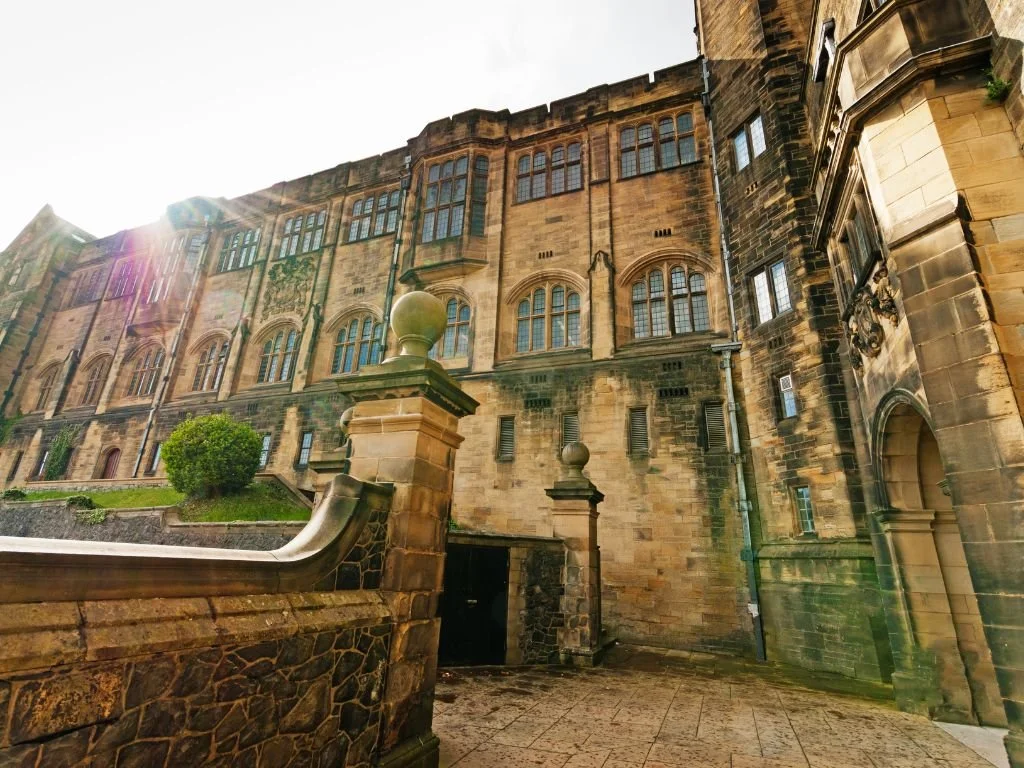

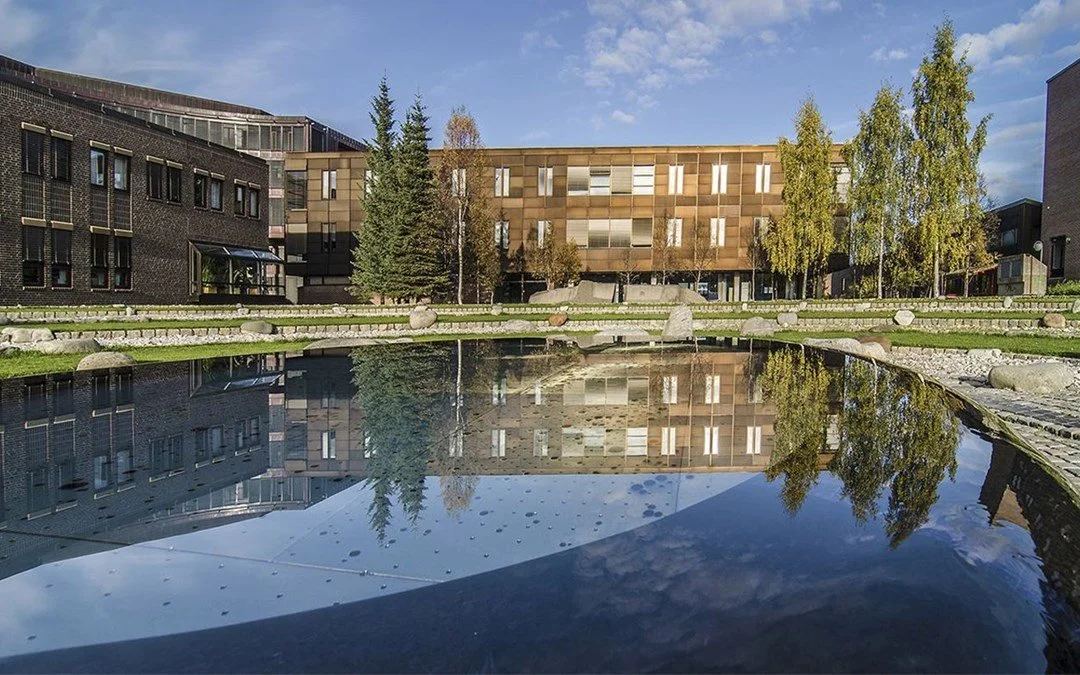


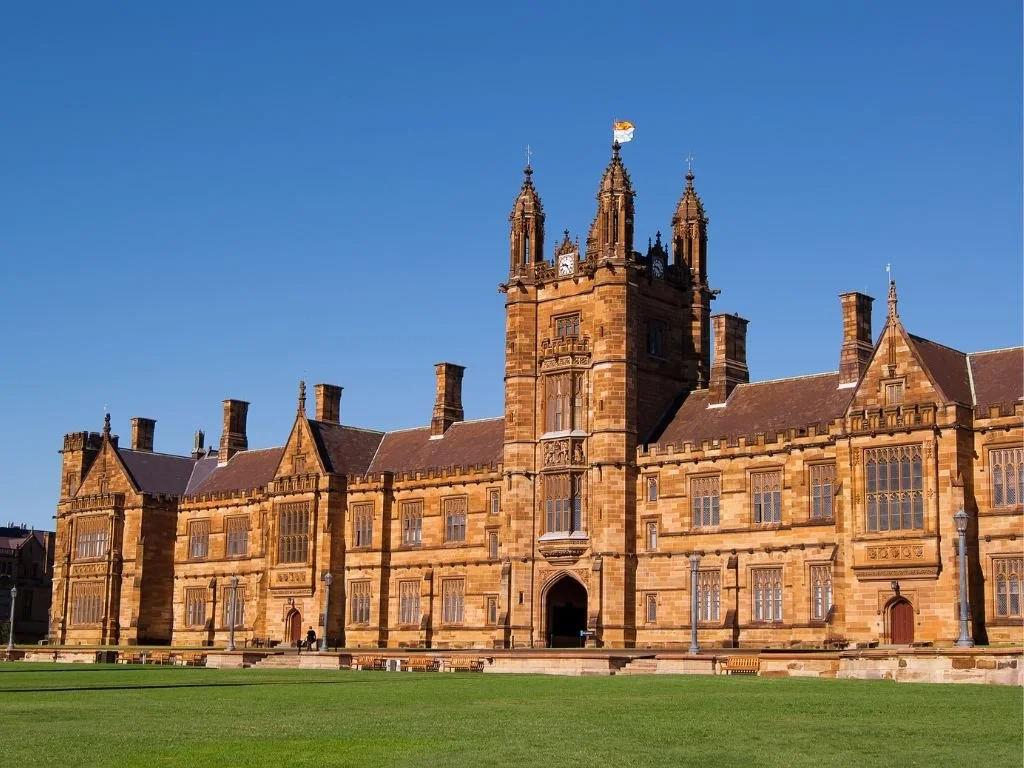
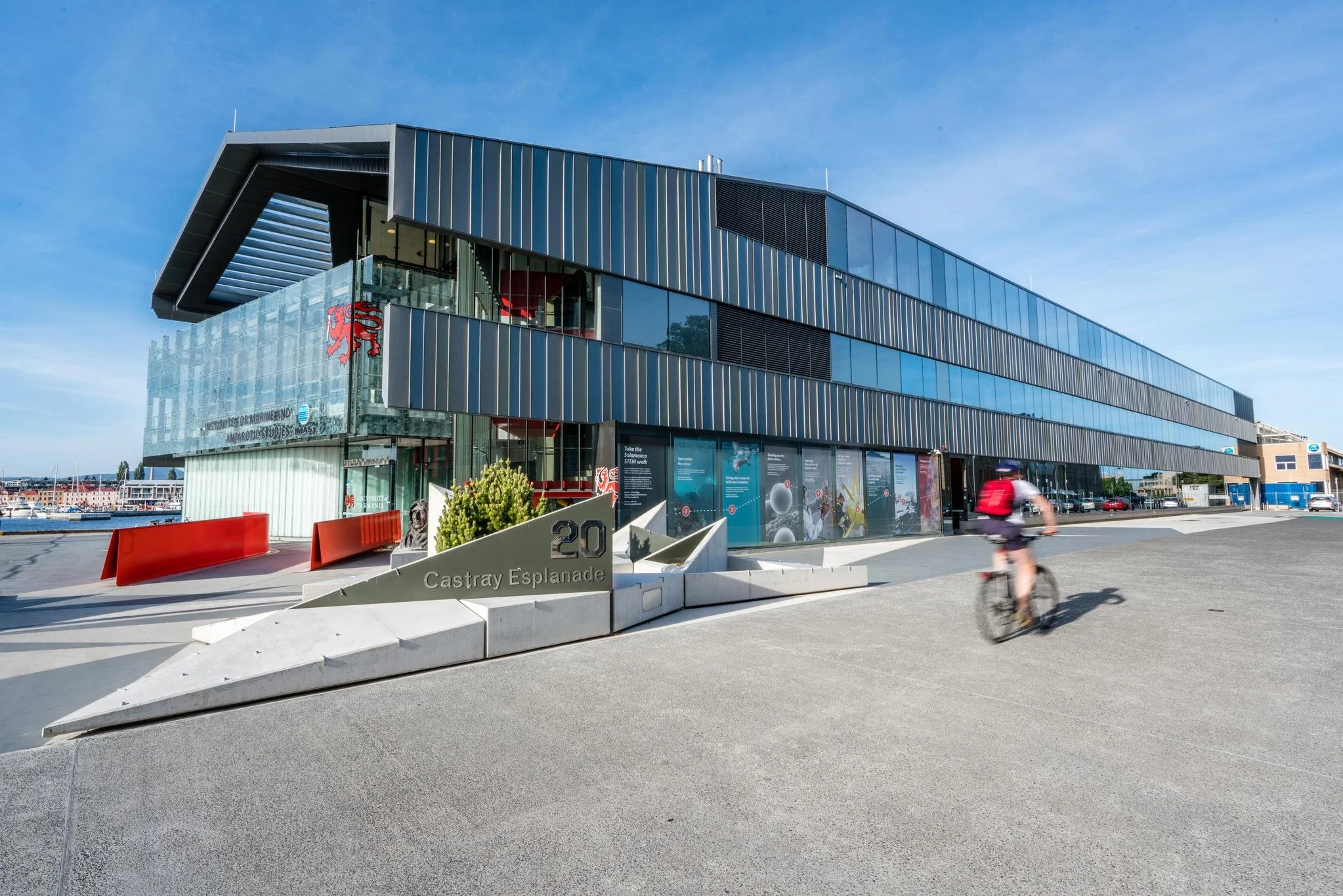



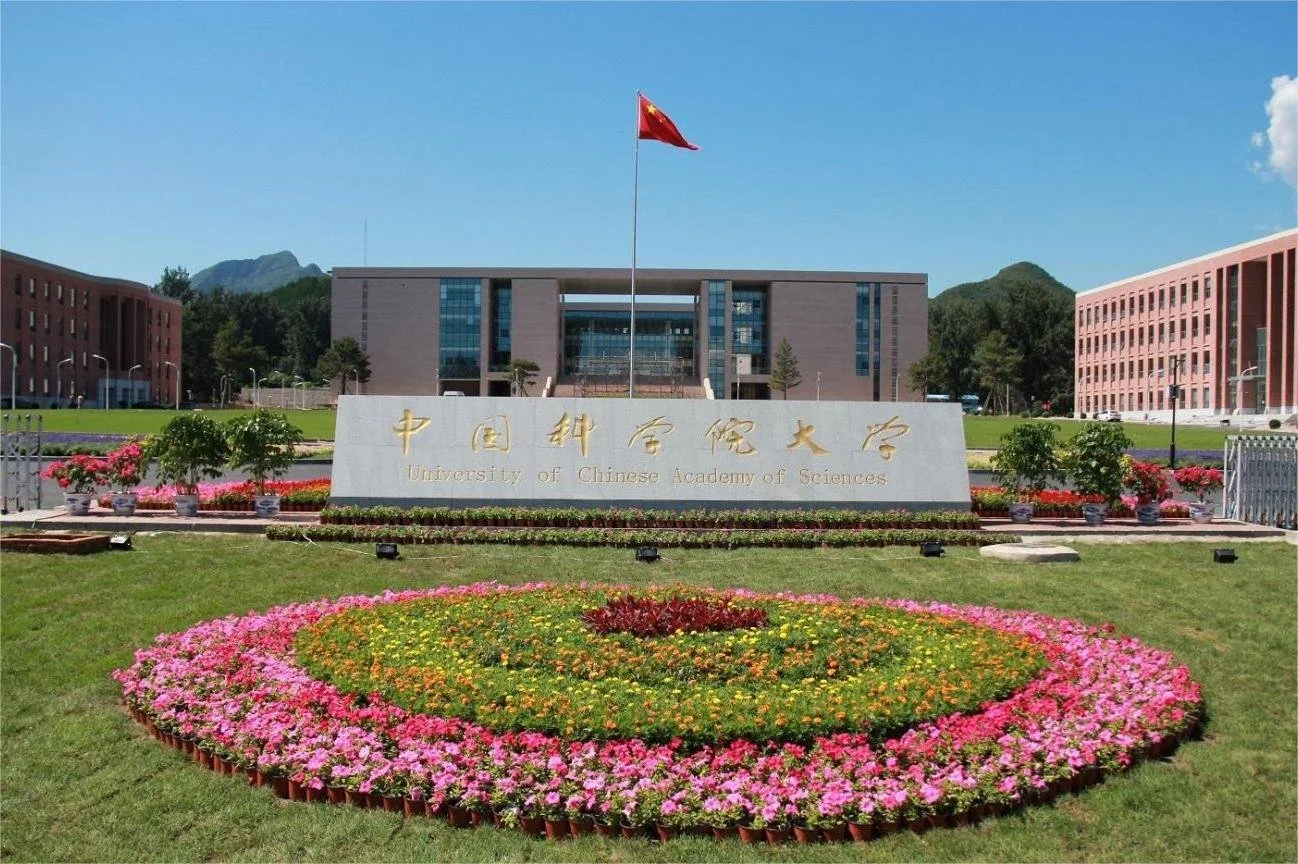













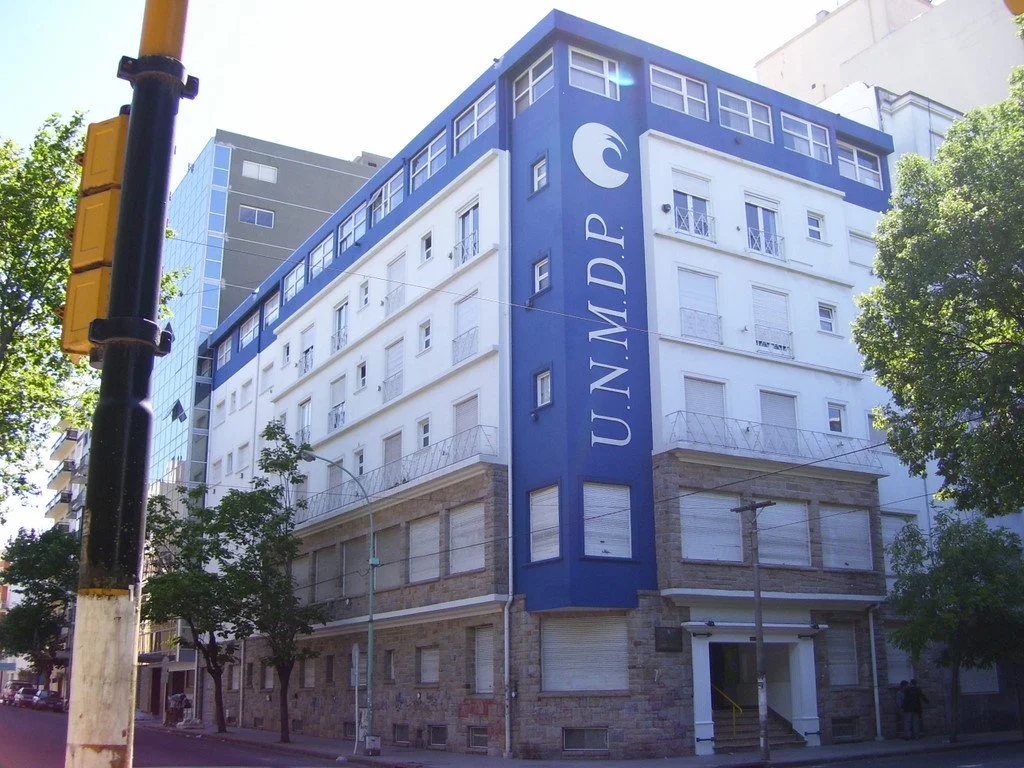


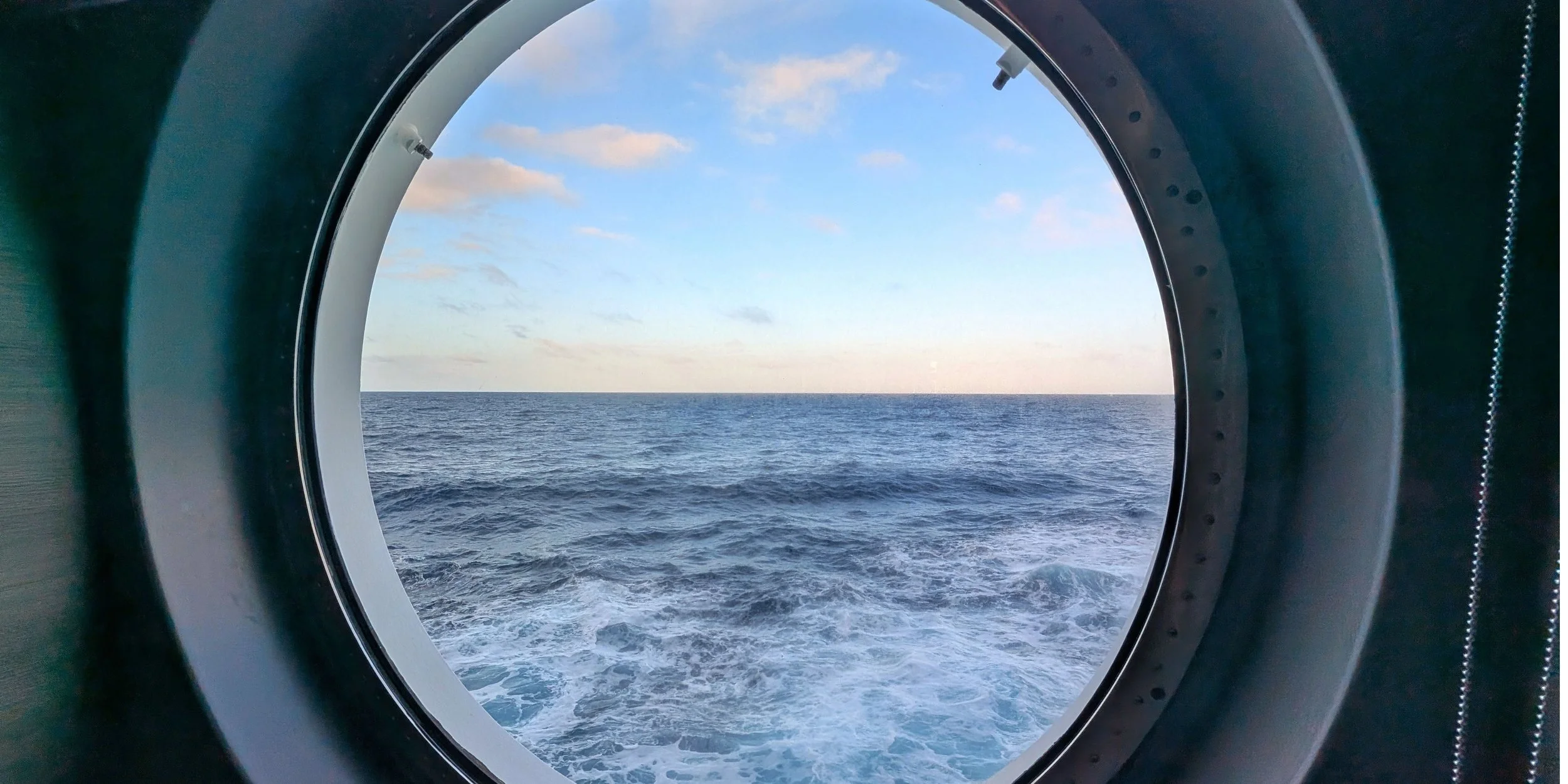














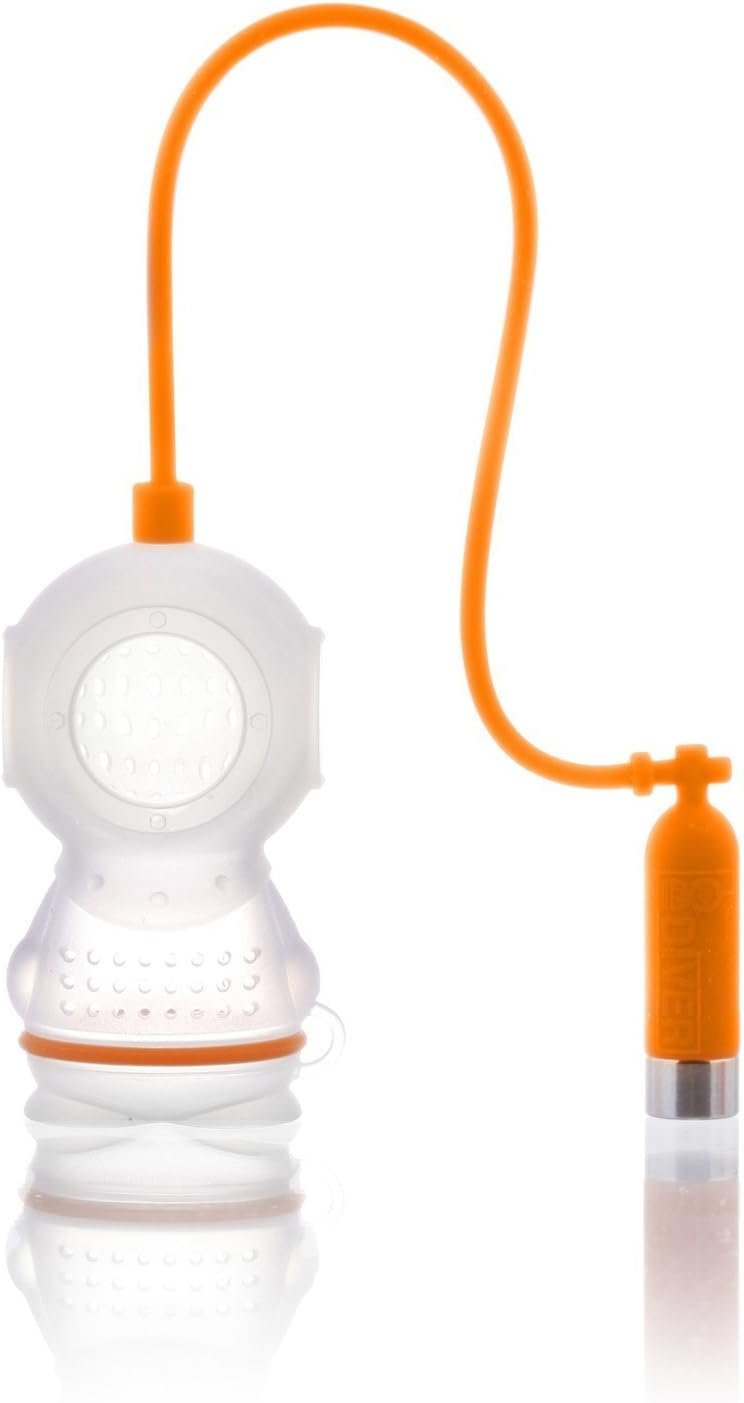





















Not sure when to specialize in marine biology or marine science? This helpful guide breaks down when to stay broad, when to specialize, and how to make strategic academic decisions that protect your future career options as a scientist.